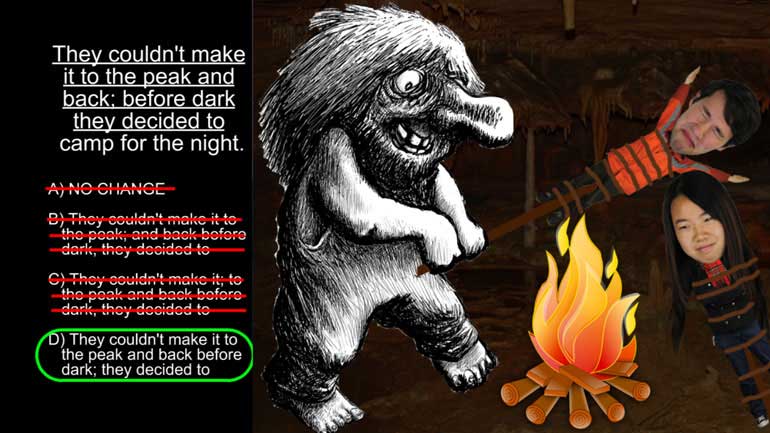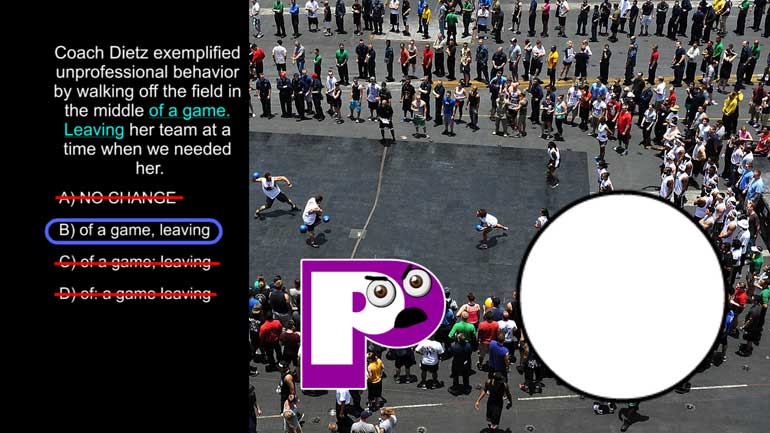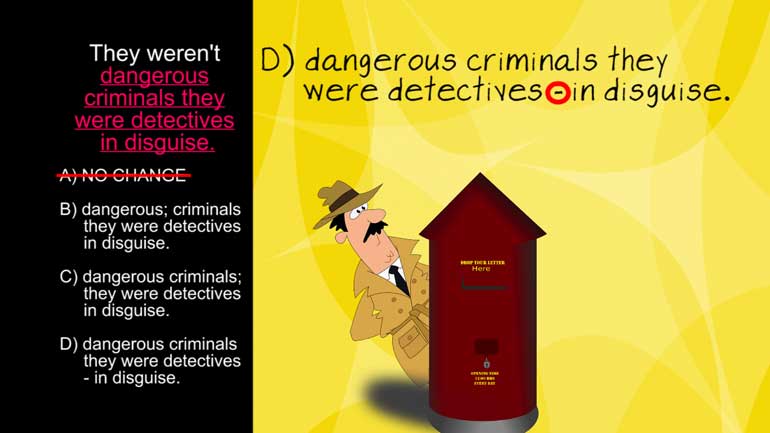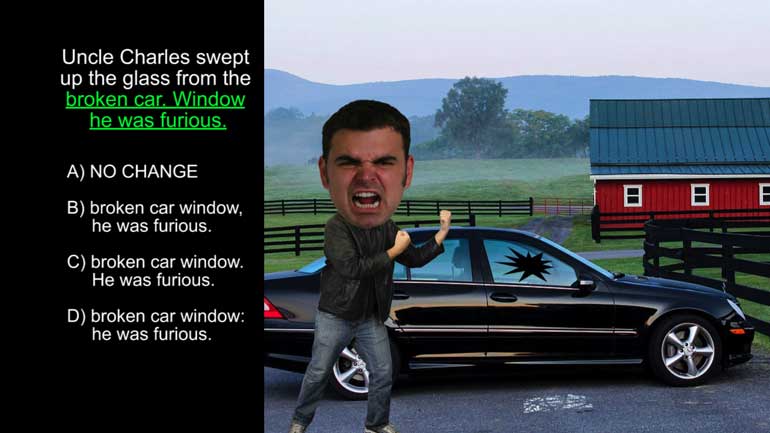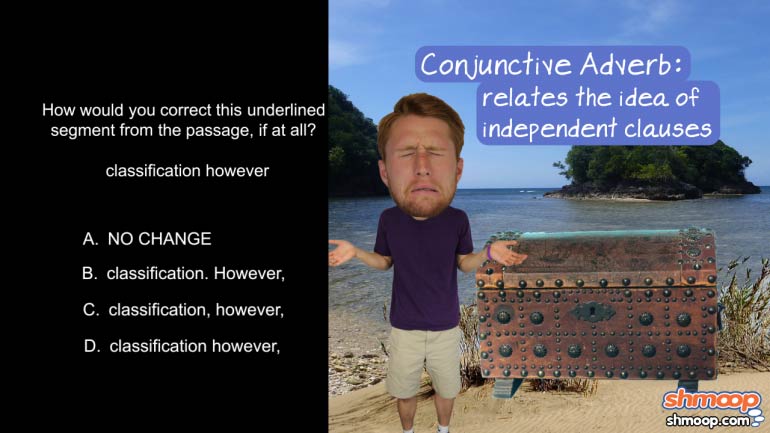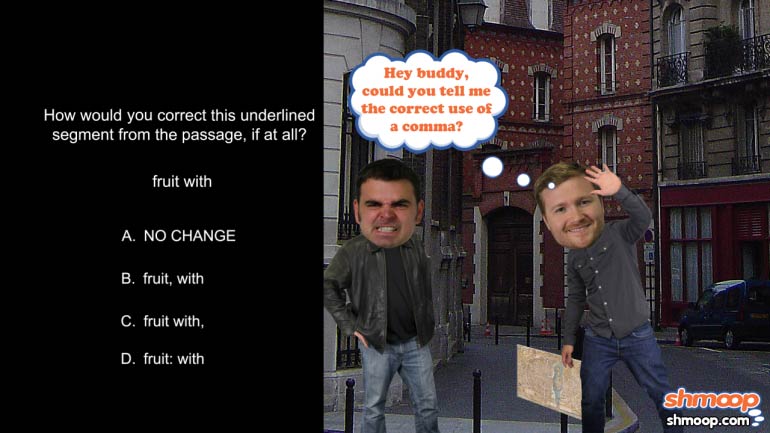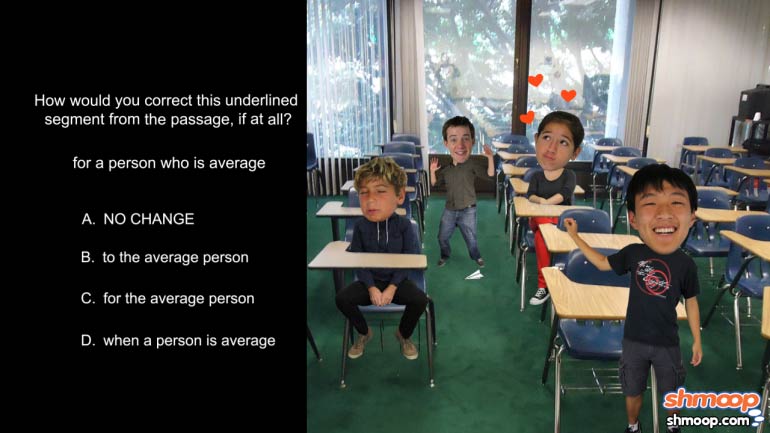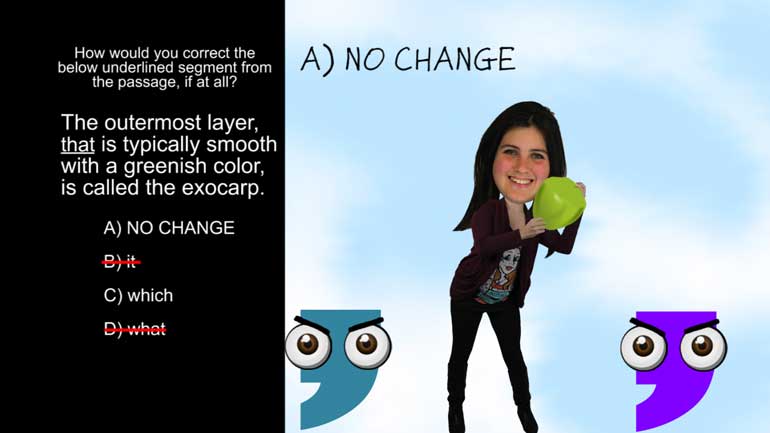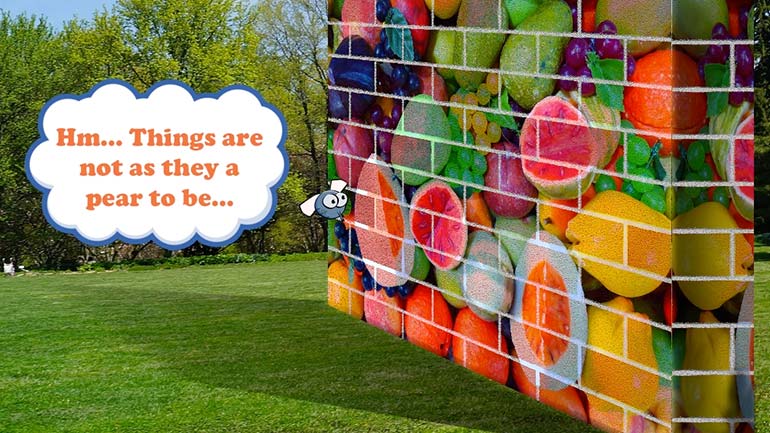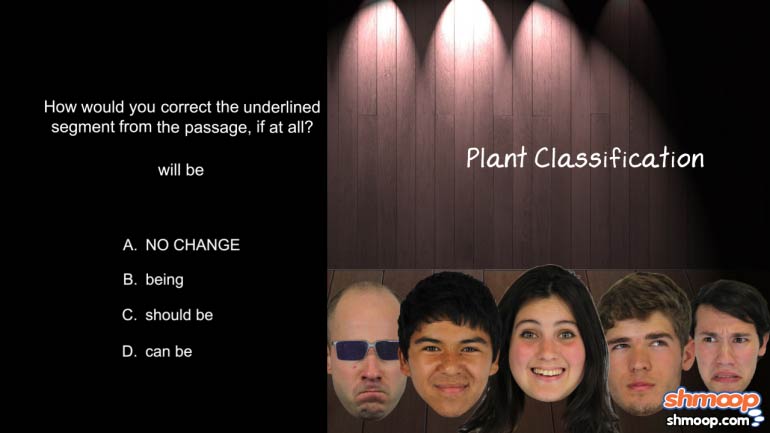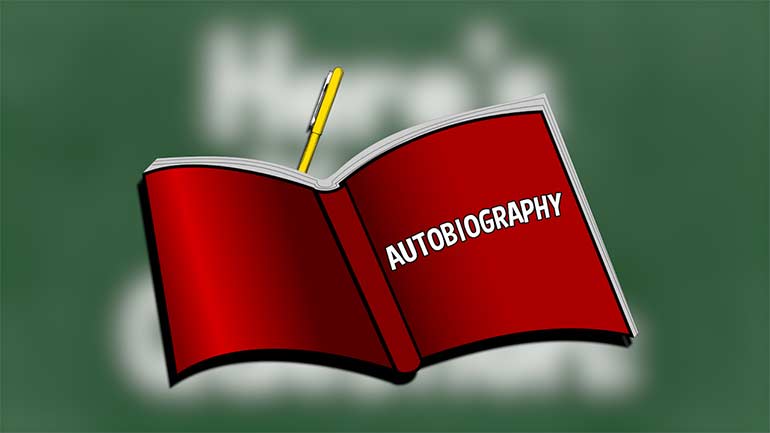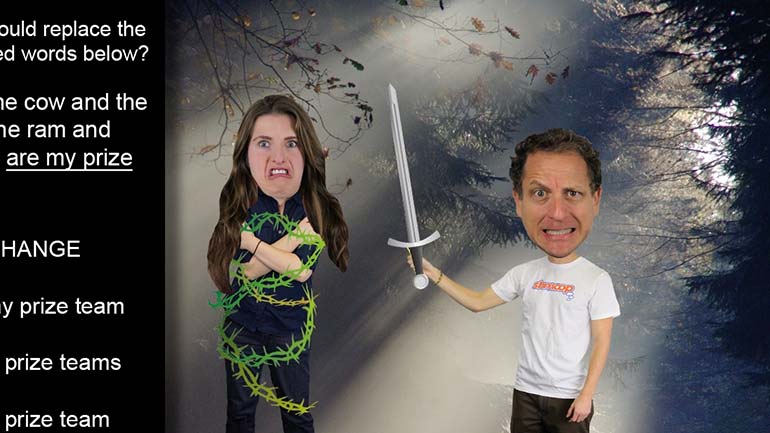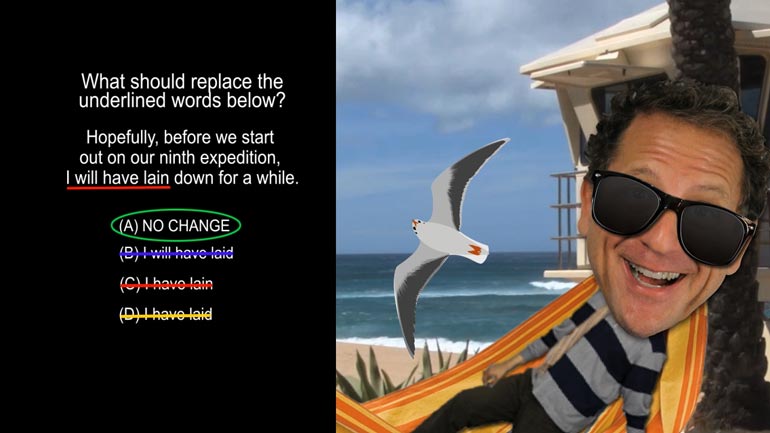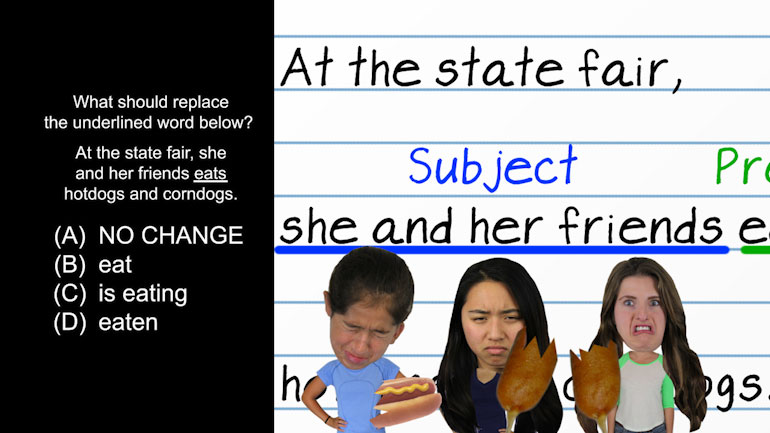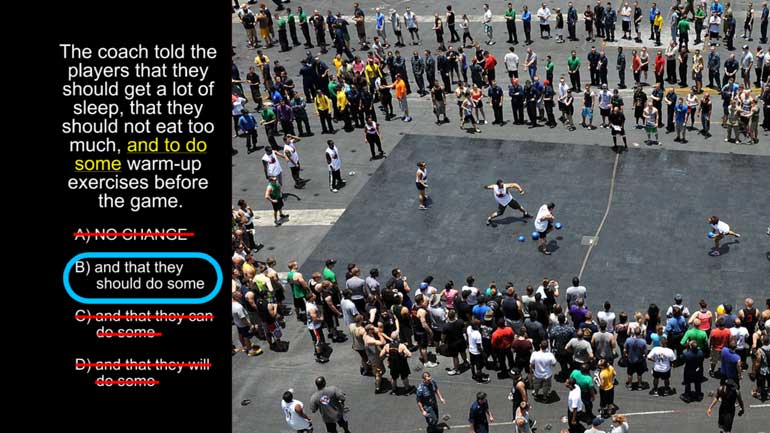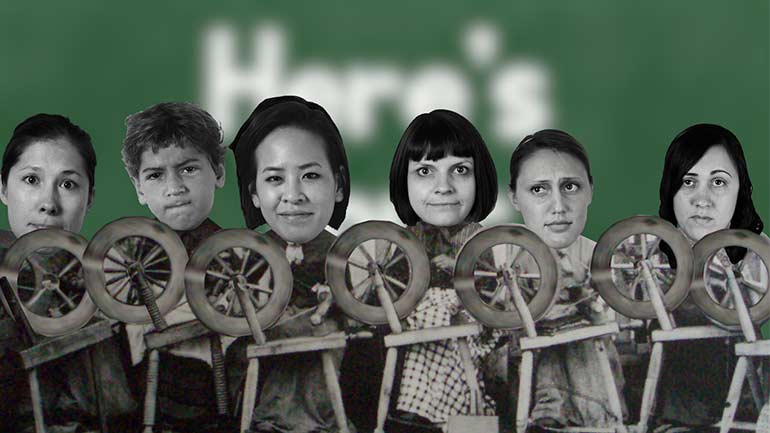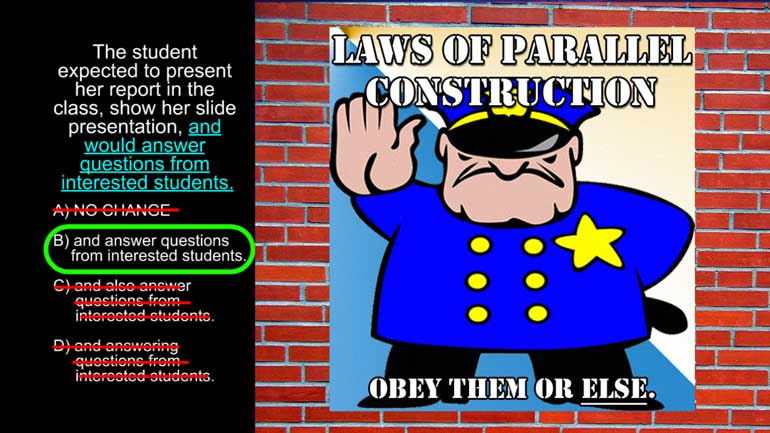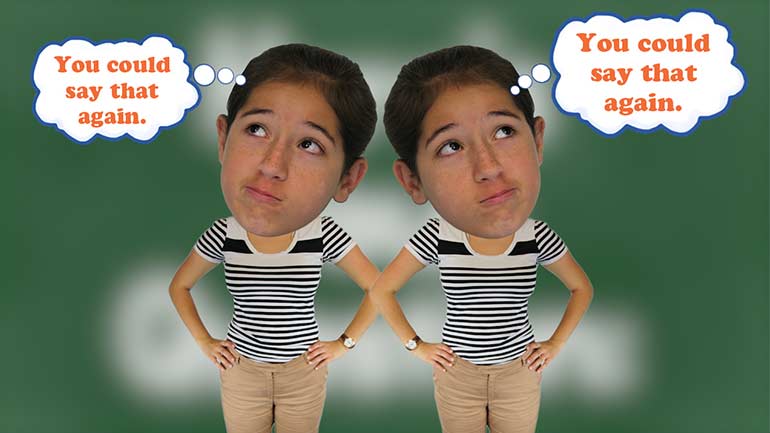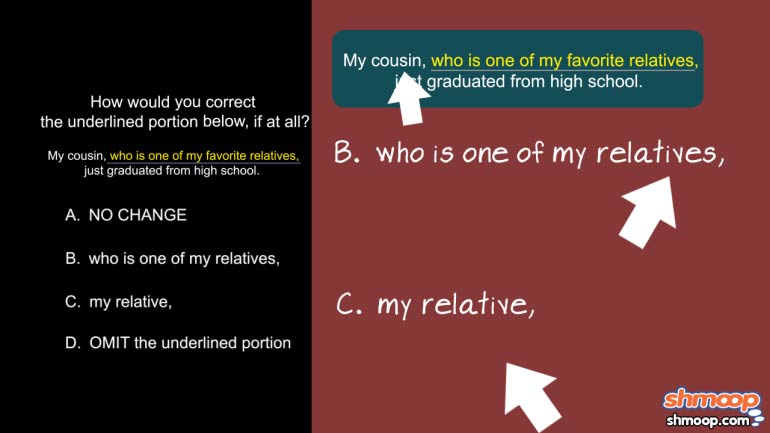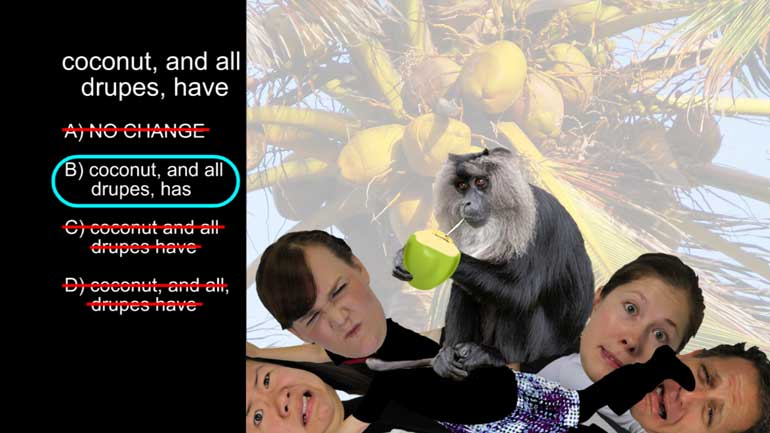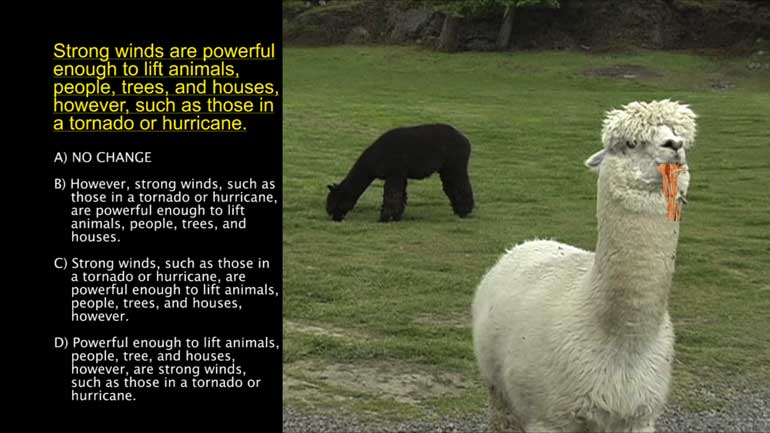ShmoopTube
Where Monty Python meets your 10th grade teacher.
Search Thousands of Shmoop Videos
Usage/Mechanics Videos 29 videos
ACT English: Punctuation Drill 3, Problem 4. Which choice best formats this list of items?
ACT English: Punctuation Drill 2, Problem 3. Where does the semicolon fit best?
ACT English: Punctuation Drill 2, Problem 5. Which choice indicates the best place for a semi-colon in the sentence?
ACT English 1.2 Passage Drill 211 Views
Share It!
Description:
ACT English: Passage Drill 1, Problem 2. What is the right tense for this verb?
Transcript
- 00:03
Here's your Shmoop du jour, brought to you by the future unreal conditional. Which is
- 00:08
a verb tense, as well as a lesser-known psychedelic rock band.
- 00:28
How would you correct the underlined segment from the passage, if at all?
- 00:32
will be
- 00:35
And here are the potential answers:
Full Transcript
- 00:38
Will be, or not will be? That is the question, sort of.
- 00:42
What we are tying to do is figure out the right tense for this sentence's "to be" verb.
- 00:47
Choice (A) is wrong, because it uses the future tense, which is too definite for the meaning
- 00:51
this sentence is trying to relate.
- 00:53
It's not accurate to say that plant classification is above the head of every single "average"
- 00:58
person in the world.
- 01:01
Surely, there are some everyday people out there whose thumbs are green enough to comprehend such things.
- 01:05
(B) gives us the present progressive tense with the word "being."
- 01:09
Present progressive tense is used to describe action that is taking place now and will continue
- 01:14
to do so in the future.
- 01:15
This sentence isn't telling us that average people are, at this very moment, scratching
- 01:19
their heads as they try to identify plants.
- 01:22
The sentence is speaking more theoretically, so we'll cross out choice (B).
- 01:26
Choice (C) is getting warmer. "Should be" is in what's known as the "conditional tense."
- 01:31
To be more specific, it's in the future unreal conditional tense. Anybody else feel like
- 01:38
we just entered the Twilight Zone?
- 01:40
Future unreal conditional isn't as complicated or "out there" as it sounds. We use this tense
- 01:45
to describe things that might happen in the future, but aren't definite.
- 01:48
Check out this sentence for example: Somebody should tell Kanye to stop putting his foot in his mouth.
- 01:53
Here, we're not sure if somebody's going to give this advice to Kanye or not. Although
- 01:58
we're sure he wouldn't listen even if someone did.
- 02:01
So, "should" is still not quite the right word for this sentence.
- 02:05
There's nothing wrong with future unreal conditional here, but the connotation of the word "should" just doesn't fit.
- 02:11
It implies that average people are supposed to be confused by plant classifications.
- 02:18
Choice (D) gets it right with "can be," which is also in the future unreal conditional tense.
- 02:24
This time, though, connotations don't derail the whole thing.
- 02:27
The use of the word "can" implies that it's entirely possible that average people might
- 02:31
have a tough time classifying plants, but that it's not completely impossible they'd
- 02:35
do OK with it.
- 02:37
Score one for the common man.
Related Videos
ACT English: Punctuation Drill 3, Problem 4. Which choice best formats this list of items?
ACT English: Punctuation Drill 2, Problem 2. Where should the semi-colon be placed?
ACT English: Punctuation Drill 3, Problem 1. How should this sentence be changed so that it is grammatically correct?
ACT English: Punctuation Drill 3, Problem 2. How should we properly hyphenate the words in this sentence?
ACT English: Punctuation Drill 2, Problem 1. Which choice of punctuation best completes the sentence?

